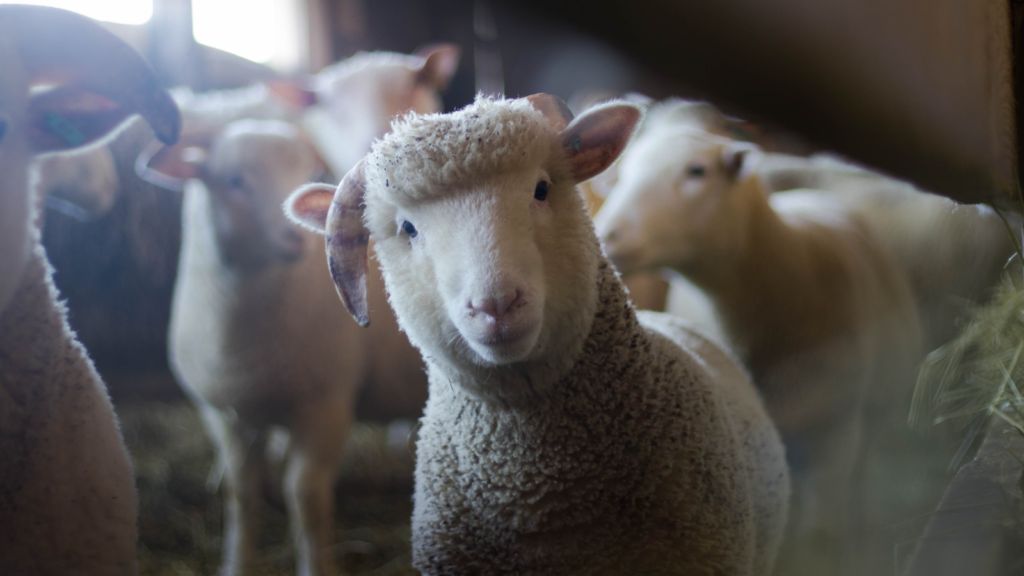In a world where ethical concerns and environmental issues are at the forefront of global discussions, the concepts of compassion and veganism have gained significant attention. While some perceive them as personal choices or dietary preferences, it’s essential to understand the basic responsibility towards being a human. By doing so, compassion and veganism become moral and spiritual mandates. This article delves into the profound reasons why being compassionate and embracing a vegan lifestyle are not mere choices but important ethical obligations rooted in morality and spirituality.
“A human being is a part of the whole called by us universe, a part limited in time and space. He experiences himself, his thoughts and feeling as something separated from the rest, a kind of optical delusion of his consciousness. This delusion is a kind of prison for us, restricting us to our personal desires and to affection for a few persons nearest to us. Our task must be to free ourselves from this prison by widening our circle of compassion to embrace all living creatures and the whole of nature in its beauty.”
Compassion As a Moral Mandate
Compassion, defined as the ability to understand and empathize with the suffering of others, is an inherent human trait that holds a central position in various moral frameworks. It transcends individual preferences and extends to all sentient beings, emphasizing the importance of kindness, empathy, and fairness in our interactions with the world.
From a moral standpoint, compassion compels us to recognize the inherent worth and dignity of all living beings. It calls us to extend our empathy and care beyond our immediate circle of family and friends, embracing a broader sense of responsibility towards animals, nature, and the planet. Choosing compassion means actively working to alleviate suffering and promoting justice for all beings, irrespective of their species.
Veganism As a Spiritual Mandate
Veganism, often seen as a natural extension of compassion, goes beyond a dietary choice and aligns with spiritual values in numerous belief systems. Various spiritual and philosophical traditions emphasize the interconnectedness of all life forms and the need to live in harmony with nature. Many spiritual teachings encourage followers to cultivate compassion and practice non-violence (ahinsa) towards all beings. Veganism aligns with these principles by refraining from participating in the exploitation and harm of animals for food, clothing, or any other purpose. By adopting a vegan lifestyle, individuals actively acknowledge the interdependence of all living creatures and seek to minimize their impact on the environment.
Moreover, veganism is consistent with the concept of stewardship, which asserts that humans have a responsibility to protect and care for the Earth and its inhabitants. By choosing plant-based alternatives over animal products, individuals reduce their carbon footprint, conserve natural resources, and contribute to mitigating the adverse effects of animal agriculture on the environment. This aligns with the spiritual notion of living in harmony with the Earth and being mindful of our actions.
The Ethics of Compassion and Veganism
The ethical foundations of compassion and veganism are grounded in the recognition that animals are sentient beings capable of experiencing pain, pleasure, and a range of emotions. Scientific research has increasingly revealed the cognitive and emotional complexity of animals, challenging the long-held notion that humans alone are capable of suffering. Treating animals with compassion and refraining from exploiting them for our own benefit becomes not just a choice, but a moral imperative. Just as we recognize the inherent worth and rights of other human beings, extending that recognition to animals demands that we consider their well-being and dignity as well.
The industrialized systems of animal agriculture, characterized by factory farming and intensive practices, often inflict immense suffering on animals. The conditions in which animals are confined, subjected to physical mutilations, and separated from their offspring are inconsistent with the principles of compassion and respect for life. By choosing veganism, individuals consciously withdraw their support from these harmful practices and embrace a lifestyle that reflects their commitment to justice, empathy, and non-violence.

Common Arguments Against Not Being Compassionate (Vegan in today’s scenario)
Ignorant Argument #1: Humans are naturally omnivorous, and it is natural to consume meat
While it is true that humans have historically consumed both plants and animals, it does not necessarily imply that it is the most ethical or sustainable choice in our modern context. Evolutionary history does not dictate our moral obligations. The ability to make choices based on ethical considerations sets humans apart from other animals.
Research has shown that humans can thrive on plant-based diets, provided they are well-planned and nutritionally balanced. Numerous scientific studies have highlighted the potential health benefits of a plant-based diet, including reduced risks of heart disease, diabetes, certain cancers, and obesity. It is possible to meet all nutritional requirements through a well-rounded vegan diet, including protein, iron, calcium, and vitamins.
Ignorant Argument #2: Animal agriculture supports local economies and provides jobs
While it is true that animal agriculture can contribute to local economies and provide employment opportunities, it is crucial to evaluate the broader impacts of this industry. The negative consequences associated with animal agriculture, such as environmental degradation, health risks, and ethical concerns, should not be overlooked.
Moreover, as the demand for plant-based alternatives continues to grow, so does the market for plant-based products. Transitioning to a more sustainable food system, focused on plant-based options, can create new job opportunities in areas such as plant-based food production, farming of plant-based ingredients, and research and development of plant-based technologies.
Ignorant Argument #3: Animal products are necessary for optimal nutrition, particularly for certain nutrients like vitamin B12 and omega-3 fatty acids
While it is true that some nutrients like vitamin B12 and omega-3 fatty acids are predominantly found in animal products, it is important to note that they can be obtained through alternative sources or supplementation. For example, vitamin B12, which is essential for nerve function and the production of red blood cells, can be obtained from fortified plant-based foods or supplements. Many plant-based milks, cereals, and nutritional yeast are fortified with vitamin B12. As for omega-3 fatty acids, they can be obtained from plant-based sources such as flaxseeds, chia seeds, walnuts, and algae-based supplements.
Additionally, research suggests that plant-based diets can provide adequate nutrition when well-planned and diversified. A balanced vegan diet, rich in a variety of fruits, vegetables, whole grains, legumes, nuts, and seeds, can meet nutritional needs while offering numerous health benefits.
Ignorant Argument #4: But, plants have life, too?
Indeed, plants are living organisms, and their well-being is a valid consideration. However, it is crucial to distinguish between the capacity for suffering and the ability to experience pain and consciousness. Unlike animals, plants lack a central nervous system and the cognitive faculties necessary for conscious experiences. While they respond to environmental stimuli, it is widely accepted that they do not possess subjective experiences or the ability to suffer in the same way that animals do.
Despite the large land use, the caloric contribution of meat production is relatively low compared to plant-based agriculture. Animal-based products, including meat, dairy, and eggs, contribute to approximately 18% of the global caloric supply. (Source: FAO, “Livestock’s Long Shadow: Environmental Issues and Options”) The majority of the global caloric supply comes from plant-based agriculture. Crops directly consumed by humans provide approximately 82% of the global caloric supply. By consuming plant-based foods directly, rather than funneling them through animal agriculture, we can minimize the overall harm inflicted on sentient beings, including both animals and plants.

Below are some quick statistics to make to feel even more confident about living a more compassionate life
- Health Benefits of Plant-Based Diets:
- A study published in the Journal of the American Heart Association found that a plant-based diet is associated with a 16% lower risk of cardiovascular disease.
- According to the American Diabetes Association, plant-based diets can help manage and prevent type 2 diabetes, with research showing improvements in blood glucose control and weight management.
- Environmental Impact of Animal Agriculture:
- The United Nations Food and Agriculture Organization reports that animal agriculture is responsible for approximately 14.5% of global greenhouse gas emissions, exceeding the emissions from the entire transportation sector.
- Livestock farming requires large amounts of water. It takes approximately 1,800 to 2,500 gallons of water to produce one pound of beef, compared to around 39 gallons to produce one pound of vegetables.
- Nutritional Adequacy of Plant-Based Diets:
- The Academy of Nutrition and Dietetics states that appropriately planned vegetarian and vegan diets are healthful, nutritionally adequate, and can provide benefits for all stages of life, including infancy, childhood, adolescence, and pregnancy.
- A review published in the Journal of the American College of Nutrition found that plant-based diets can provide adequate amounts of protein, essential fatty acids, vitamins, minerals, and other nutrients when properly planned.
- Resource Efficiency of Plant-Based Agriculture:
- The University of Oxford conducted a study that revealed adopting a vegan diet could reduce an individual’s carbon footprint by up to 73%.
- According to the World Wildlife Fund, it takes 15,415 liters of water to produce one kilogram of beef, while it takes only 322 liters of water to produce one kilogram of vegetables.
Being compassionate and adopting a vegan lifestyle transcend personal preferences and transform into moral and spiritual mandates. Recognizing the interconnectedness of all life forms and the moral obligation to alleviate suffering, individuals who choose compassion and veganism actively engage in promoting justice, empathy, and harmony with the natural world.
Access my in-depth research on everything you need to know about Veganism and related data: https://docs.google.com/document/d/14AyKUg_EIx76Pu-yMAUPaNVGbycqZVenJ6D30FlJOhY/edit?usp=sharing
Liked this blog? Consider reading similar ones!

